Hard agree, and not just because I'm a spreadsheet nerd. Why are we all here? Isn't it in the service…
News 12/13/13
Top News
Athenahealth lowers FY14 guidance, projecting EPS of $0.98-$1.10 vs. analyst expectations of $1.38, sending shares down 14 percent Wednesday.
Reader Comments
From Norm: “Re: HHS Office for Civil Rights. I’m not surprised the OCR had issues with their internal security practices based on my past interactions. I’ve been through a couple of OCR audits and my staff and I spent almost as much time educating the auditors on the MU requirements and the meaning of various measurements as we did compiling the reports for the actual audit. I’m curious if that is also the experience of other HIStalk readers.” Readers are welcome to weigh in.
From Bobby Orr: “Re: Lifespan (RI). Having to borrow another $50 million during bad financial times to buy Epic may not have been the best idea.” Lifespan’s net earnings dropped from $41 million to a loss of $5 million in the most recent fiscal year excluding a one-time gain. The health system blames the “unique dynamic in play nationwide.” It paid its CEO $7.88 million in 2011.
HIStalk Announcements and Requests
![]() In you’ve gotten behind on your ambulatory reading in the midst of the busy holiday season, here are a few highlights: MGMA requests end-to-end ICD-10 testing with physician offices. CMS will develop guidelines for the practice of copying and pasting in EHRs. Private physicians office are predicted to net profit margins of 12.7 percent for 2013. Only 17 percent of Medicaid EPs are meaningful EHR users, though 76 percent have been paid an EHR incentive. An autism module added to an EHR’s clinical decision support system improves screening. Brad Boyd of Culbert Healthcare Solutions considers the value of EHR optimization. Dr. Gregg wonders if health IT cares. If you take a moment to sign up for the HIStalk Practice email updates it will be like buying a Christmas present for your BFF (in this case me) and getting a present for yourself at the same time (come on, you know you’ve done that.) Thanks for reading.
In you’ve gotten behind on your ambulatory reading in the midst of the busy holiday season, here are a few highlights: MGMA requests end-to-end ICD-10 testing with physician offices. CMS will develop guidelines for the practice of copying and pasting in EHRs. Private physicians office are predicted to net profit margins of 12.7 percent for 2013. Only 17 percent of Medicaid EPs are meaningful EHR users, though 76 percent have been paid an EHR incentive. An autism module added to an EHR’s clinical decision support system improves screening. Brad Boyd of Culbert Healthcare Solutions considers the value of EHR optimization. Dr. Gregg wonders if health IT cares. If you take a moment to sign up for the HIStalk Practice email updates it will be like buying a Christmas present for your BFF (in this case me) and getting a present for yourself at the same time (come on, you know you’ve done that.) Thanks for reading.
On the Jobs Page: VP of Product Management.
Acquisitions, Funding, Business, and Stock
Streamline Health Solutions reports Q3 results: revenue flat, EPS -$0.50 vs $0.18.
Doctor on Demand, which offers $40 video chats with US-licensed doctors, closes $3 million in seed funding. Investors include athenahealth’s Jonathan Bush, Venrock, and Google Ventures.
Toronto startup Figure 1, which offers a photo-sharing app for physicians, raises $2 million in seed money.
Cerner will take a Q4 earnings charge of up to $0.19 per share (vs. expected earnings of $0.35) after an arbitrator rules in favor of Trinity Medical Center (ND). The value of the settlement wasn’t announced, but the hospital had sought $240 million, claiming that the Cerner Pro-Fit financial system it bought in 2008 was dysfunctional. CERN shares closed down 1 percent Thursday.
Sales
Estes Park Medical Center (CO) selects Summit Healthcare to integrate its Meditech HCIS and MEDHOST EDIS.
Butler County Health Care Center (NE) selects Access electronic patient signature and e-forms solutions to complement its Meditech rollout.
Springhill Medical Center (AL) chooses Allscripts Sunrise Surgical Care to manage the perioperative care process.
The 16-bed Crook County Memorial Hospital (WY) contracts with RazorInsights for its ONE-Enterprise Edition.
People
Alere appoints former US Surgeon General Regina M. Benjamin, MD to its board.
MidMichigan Health names Dan Waltz (University of Michigan Health System) as VP/CIO.
Joe Craver, president of the health and engineering sector of Leidos, resigns. The parent company of the split-up SAIC announced this week that it lost $7 million in the most recent quarter vs. a profit of $100 million year over year. Revenue in Health and Engineering dropped 20 percent, which the company attributed to completed projects, less new business, and shrinking hospital budgets. That division includes SAIC’s healthcare consulting acquisitions, Vitalize Consulting Solutions (July 2011, price not disclosed) and maxIT Healthcare (July 2012, $473 million.)
Announcements and Implementations
CommonWell Health Alliance will launch its interoperability services in early 2014 in Chicago; Elkin and Henderson, NC; and Columbia, SC.
Cerner will offer KidsHealth pediatric-specific discharge and after-care instructions within the Cerner Millennium Patient Education Content.
Practice EMR vendor drchrono releases an API that will allow developers to extend and enhance its platform.
Government and Politics
HHS Secretary Kathleen Sebelius reports that 365,000 individuals had selected plans from the state and federal marketplaces by the end of November, with November’s enrollment in the federal marketplace four times greater than that of October. Sebelius also reveals that the IT costs for the website totaled $677 million through the end of October.
HHS launched the Spanish version of the marketplace website last weekend.
Texas Medical Association urges CMS to extend the MU Stage 2 deadlines for another year.
A Kentucky doctor announces closure of his practice, erroneously blaming Obamacare (rather than ARRA) for requiring him to adopt electronic medical records. He says the change would be too expensive and would require thousands of hours of work to convert his paper records.
An OIG report on fraud prevention safeguards in hospital EHRs recommends that hospitals:
- Turn on EHR audit logging at all times (ONC responded that it will make this a certification requirement for vendors)
- Revoke permissions for users to delete or edit the audit
- Use audit logs to detect fraud, not just monitor for HIPAA violations
- Develop policies for using EHR copy-paste capabilities, issue warnings to users copying and pasting, and capture copy-paste activity in the audit log (CMS responded that it will develop guidelines on copy-paste use)
ONC will discuss findings from its patient matching initiative next week in Washington, DC.
Innovation and Research
Kaiser Permanente’s use of data analytics is helping to lower hospital mortality rates, according to CMIO John Mattison.
HIE data can identify ED frequent flyers better than a single hospital’s records, according to a Health Affairs-published study of 10 hospitals participating in the New York Clinical HIE.
Researchers at Johns Hopkins University are working with a Belgium-based technology company to developed a nanotechnology-based “lab on a chip” that would allow diagnostic testing to be performed anywhere.
Technology
In England, an NHS-funded patient safety project replaces paper charting of vital signs with automatic recording via an iPad app, which also calculates an Early Warning Score. Project developers Oxford University Hospitals was also awarded a grant to develop a system that links the EHR to the pharmacy packaging robot so that take-home meds can be prepared and delivered automatically, decreasing discharge delays.
Other
The Fire Department of NYC sends a medical bill, addressed to “unknown Asian” to The New School of New York, a 10,000 student college. A spokesman for FDNY says their billing contractor is fixing the problem.
HIMSS names MedPeds (MD) a 2013 Ambulatory HIMSS Davies Award of Excellence winner for its use of EHR to improve the healthcare delivery process and patient safety while achieving a demonstrated ROI.
Horizon Blue Cross Blue Shield of New Jersey notifies 840,000 customers that their personal and clinical information has been exposed after two unencrypted laptops are stolen from its offices.
Healthcare app platform vendor Happtique, which sells services to app vendors intended to improve provider confidence, suspends its certification program when an outside developer finds that apps in the first group Happtique certified two weeks ago store usernames, passwords, and data as easily exposed plain text.
A tweet by UCSF physician Bob Wachter, MD says that each ICU patient triggered an average of 1,156 alarms per day, leaving nurses with 2.5 million alarms to deal with in one month.
Weird News Andy suggests redefining “never.” In England, NHS reveals that 150 patients were harmed in six months by “never” events that included performing heart surgery on the wrong patient, removing a woman’s fallopian tube instead of her appendix, and 69 cases in which surgery implements were left inside patients.
Sponsor Updates
- Market research firm Radicati Group names AirWatch a “Top Player” in the Enterprise Mobility Management Market Quadrant.
- Cornerstone Advisors Group chooses three client-related hospital projects to support from its Cornerstone CAres charitable program funded by the company and its employees.
- The Orange County Register names Kareo a top workplace in the mid-sized company category.
- Clinithink wins the 2013 MediWales Innovation Judges Award for the development of innovative technology and outstanding contribution to the life science sector.
- Business NH Magazine names Bottomline Technologies to its Best Companies to Work For Hall of Fame for 2013.
- The HROToday Forum names Aspen Advisors and its big data platform Pando the Top Technology Innovator for 2013.
- Forward Health Group CMIO John Studebaker, MD discusses the transition to value-based care in an MGMA on-demand webinar.
- Halfpenny Technologies discusses how access to actionable and complete lab and clinical results data enables health insurance organizations improve care management.
- DrFirst presents a case study profiling Edward Sobel, DO and David Krasner, DO and and their transition to e-prescribing.
- Craneware sponsors a December 17 HFMA webinar featuring Lake Regional Health System’s (MO) development of an audit management process.
- The Boston Globe names Imprivata one of the city’s best places to work for 2013.
- Porter Hills Retirement Community Services and Home Care shares how it found flexibility and time savings through the use of the HealthMEDX Vision solution.
- Liaison Healthcare predicts six 2014 trends that will make an impact on the healthcare and life sciences industries.
- Laura Kreofsky and Jason Fortin of Impact Advisors provide commentary on the recently announced extension of Stage 2 and Stage 3 MU deadlines.
- Lincor Solutions launches a portfolio of products for delivering patient engagement to hospitals and health systems.
- Truven Health Analytics releases MarketScan Oncology EMR Database for oncology-focused research studies.
EPtalk by Dr. Jayne
I enjoyed reading Rebecca Sutphen’s piece on bringing up family health history during the holidays. Not only is it important for individuals to understand their family history for genetic purposes, but it’s good for the younger generations to be aware of conditions their older relatives may be treating. Knowing that Uncle Sal is diabetic may be helpful if he starts acting funny on Christmas Eve and he hasn’t been hitting the eggnog.
It can also be important to understand relatives’ end-of-life plans. I encourage everyone to discuss their wishes with family, especially if they don’t have an Advance Directive in place. The holidays may be the only time families get together and talk about these important issues. Good information on talking points can be found at FamilyDoctor.org.
I’ve received a lot of correspondence regarding Monday’s Curbside Consult discussing the CMS changes to Stage 2 and Stage 3. I got quite a few questions about the three years of Stage 2 for those practices that started Meaningful Use in 2011 or 2012. At this time, participating providers and hospitals will have to complete all three years and there won’t be any skipping allowed. All of the CMS materials will need to be updated, but I’m sure they will be clarifying this.
As CMS tries to use information from Stage 1 and Stage 2 to inform Stage 3, a reader shared John Halamka’s recent blog (written before the announcement) about rethinking certification. Make no mistake, the recent timeline shift does not do anything to delay the need for hospitals and providers to have their certified 2014 software live so that they can attest in 2014. I agree with his assessment that the certification criteria are “overly burdensome…. And disconnected from the attestation criteria.” Some of the certification criteria have also forced vendors to modify functionality in ways that fracture provider workflows and make it more difficult to provide care.
Since I use several different big-name products, I know that there are some nuances in the ways that vendors implement these requirements, but some of them are particularly difficult to implement with good usability in a way that actually supports clinical care. I visited one of my providers the other day and listened to what can only be described as a tirade against all the bells and whistles that don’t do anything to help him provider better care to his patients. I agreed, but also pointed out that it’s bigger than Meaningful Use and EHRs, though – there are many things that have happened in medicine during the last few decades that do little to improve patient care.
E&M coding rules, draconian audit methodologies, Medicare RAC hit squads, pre-payment audits, and the rise of defensive medicine have done little to improve care. In my experience as a patient, I think that patient portals are the best thing since sliced bread. I enjoy being able to use secure communications to take care of issues without having to take phone calls at work or schedule time off.
However, in looking through communications with my physicians over the last two years, not a single question has been medical. I don’t think it’s because I’m a physician and am making my own medical judgments. My clinical history looks very similar to most women in my age group and it’s not that complicated. Looking at the topics of communication across a couple of practices reveals: requesting a mammogram order with a wet signature for no good reason other than the imaging center wants one because it’s afraid of an audit; dealing with wacky insurance rules that require me to reschedule a visit because it’s one day earlier than the insurance plan allows; requesting to have a prescription rewritten with specific directions because my pharmacy benefit manager disagrees with one that meets all of the Surescripts guidelines for correct and accurate prescribing; and dealing with a co-pay issue because the office didn’t understand that I don’t pay one for preventive visits. There are more, but the theme is the same.
My fear (which I think is well founded) is that things are only going to get more complex. To make things more interesting, like many Americans, I have brand new health insurance starting after the first of the year. Now I get to figure out all the nuances that took me years to figure out with my previous carrier. At least we can all sympathize. It’s looking like 2014 is shaping up to be a very interesting year indeed.
A shout-out to my friend Dr. Doug Farrago of the Authentic Medicine Gazette for sharing this quote of the week which sums up my recent challenges as a CMIO:
I never did give anybody hell. I just told the truth and they thought it was hell.
Contacts
Mr. H, Inga, Dr. Jayne, Dr. Gregg, Lt. Dan, Dr. Travis, Lorre.
More news, HIStalk Practice, HIStalk Connect.




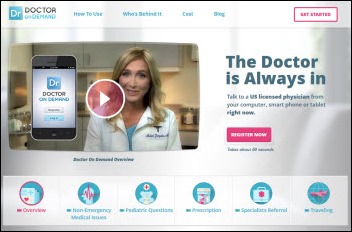
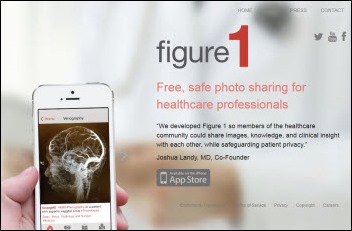
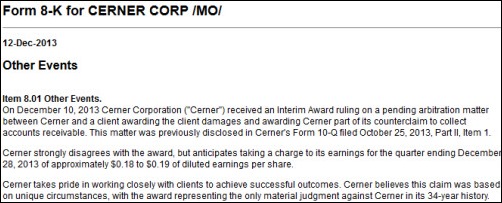



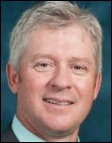

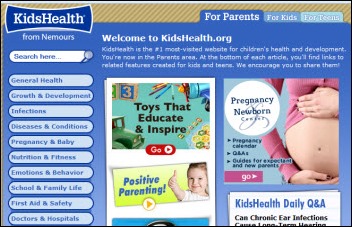
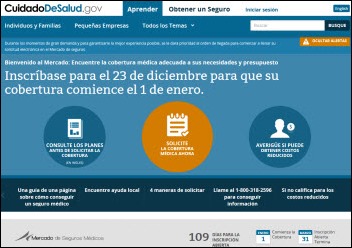
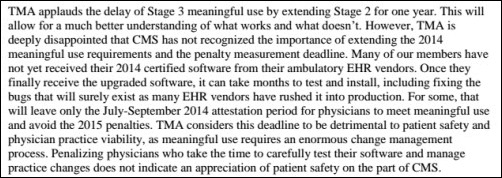
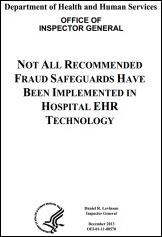


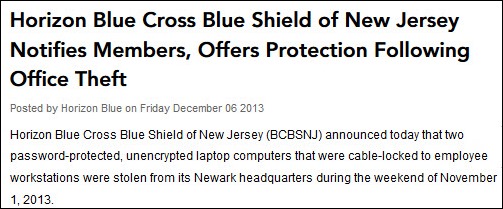


Re; “Some of the certification criteria have also forced vendors to modify functionality in ways that fracture provider workflows and make it more difficult to provide care.”
From my experience with dozens of vendor certifications I could generate a long list of ‘strange’ enhancement examples. And remember not too long ago, the renowned Dr. M accused vendors of ‘gaming’ the system by putting appendages into their software “just to meet certification”. My guess is he preferred that a vendor do a total redesign/rewrite of their product so as to make the certification element transparent. If that what was expected they should have budgeted $30 trillion, not $30 billion, and funded 100 new software firms.
As to the comment it’s getting more complex – Amen, if you think waiting to get certified under the new (yet to be defined) 2015 criteria, I have a bridge…